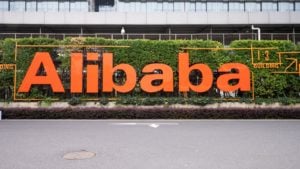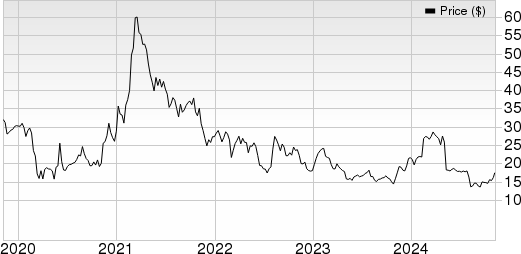U.S.-listed Hong Kong stocks have faced a challenging few years as Chinese equities have been on a downward trend, exacerbated by the 2023 liquidation of property developer Evergrande. This issue was only compounded by outflows from Chinese and Hong Kong stocks, which reached their highest point since 2014 in January, marking the sixth consecutive month of net capital leaving the country.
However, a recent turnaround saw U.S.-listed Hong Kong stocks experiencing an uptick as the Chinese government implemented measures to bolster the stock exchange, resulting in a notable rise in the Hang Seng index and the CSI 300. This support was followed by an influx of hedge fund purchases in A-shares and Chinese companies listed in Hong Kong, including U.S.-listed Hong Kong stocks, marking the largest purchase in five years.
Following the announcement, U.S.-listed Hong Kong stocks extended their gains. The Hang Seng index’s price-to-earnings (PE) ratio dropped from approximately 10.50 at the beginning of January to 9.98, signaling a potential undervaluation and promising reversal.
Alibaba (BABA)

Source: zhu difeng / Shutterstock.com
Despite a significant decline from its 2020 peak, Alibaba’s stock is currently trading at a PE ratio of 10.8, a notable contrast to its American counterpart, Amazon, which trades at a PE ratio of 58.3.
Analysts project potential upside for BABA as the company expands its cloud segment and AI initiatives, with the average price target implying around 60% growth, making the U.S.-listed Hong Kong stock an appealing option. Furthermore, Alibaba’s founders, Jack Ma and Joe Tsai, have recently purchased $200 million worth of stock, signaling confidence in the company.
NetEase (NTES)

Source: undefined undefined / Getty Images
NetEase trades at a PE ratio of 18.2, compared to its American counterpart, Electronic Arts, which has a PE ratio of 34. Despite economic headwinds, NetEase has shown strong growth in EPS and profit margins, with insiders owning 46% of the company’s shares. This alignment with shareholders’ interests suggests a strong motivation to create value. Wall Street analysts estimate a 30% increase in share price.
Baidu (BIDU)

Source: thinkhubstudio / Shutterstock.com
Baidu, the Chinese technology giant, trades at a PE ratio of 17.9, and while it has experienced a significant decline from its early 2021 high, analysts maintain a positive outlook for the company. Baidu recently reported $26 billion in cash and liquid assets, contributing to the overall confidence in its potential for resurgence.
Amidst these developments, numerous U.S.-listed Hong Kong stocks hold promise for investors seeking opportunities in the wake of recent market volatility. These stocks, including Alibaba, NetEase, and Baidu, present compelling cases for growth and value, providing a silver lining for investors amidst the turbulent Chinese markets.
More From InvestorPlace
The post 3 U.S.-Listed Hong Kong Stocks to Buy as Chinese Markets Collapse appeared first on InvestorPlace.




